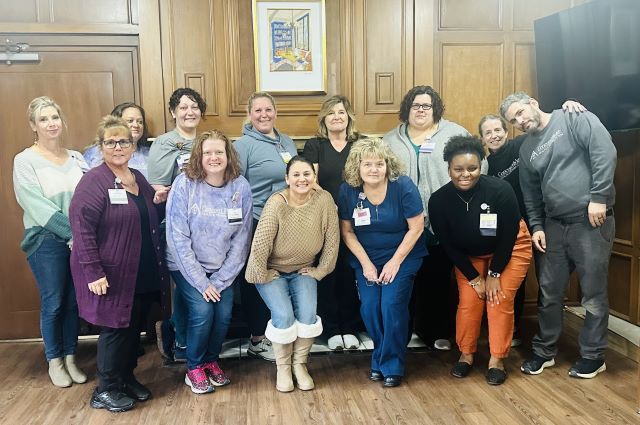Recognizing National Long-Term Care Month
November 21, 2024
November marks National Long-Term Care (LTC) Month, a time to raise awareness about the vital role long-term care facilities play in supporting older adults and individuals with chronic illnesses or disabilities. These facilities, including nursing homes, assisted living centers, and memory care units, provide essential services that allow individuals to live with dignity and comfort when they can no longer care for themselves independently.

As people age, social isolation can become a significant concern. For many older adults living at home, limited mobility, health issues, or distance from family members can lead to loneliness, which is linked to a range of negative health outcomes, including depression and cognitive decline. Long-term care facilities foster an environment where socialization is encouraged and supported, significantly improving the quality of life for residents. Socialization in long-term care communities is beneficial for physical health. Group activities like exercise classes, games, or even simple walks promote mobility, balance, and coordination, while also reducing the risk of falls and other health complications. Socializing with others can also improve appetite and encourage better eating habits, which is essential for maintaining good nutrition and health.
Beyond socialization, another primary function of long-term care facilities is to offer 24-hour medical supervision and assistance. Many residents have complex medical needs, including chronic conditions like heart disease, diabetes, arthritis, or dementia, all of which require regular monitoring and intervention. Skilled nursing staff, physical therapists, and occupational therapists are integral to this care, ensuring that residents receive proper medication, pain management, and assistance with activities of daily living (ADLs), such as bathing, dressing, and eating. Lastly, good physical care in long-term care settings supports overall health by ensuring that residents receive proper nutrition and hydration. Many residents may face challenges with eating or swallowing, and facilities employ dietitians and nursing staff to monitor and manage nutrition, ensuring that meals meet individual health needs.
Our commitment extends beyond the care of residents to also support their families and loved ones during what can be an emotional and challenging transition. We understand that moving a family member into a long-term care facility is a significant decision, often accompanied by feelings of uncertainty or guilt. That’s why our role isn’t just to provide expert care for residents, but to also guide and support families through this process. We offer resources, counseling, and regular communication to ensure loved ones feel confident in the care their family member is receiving. By fostering an open, compassionate environment, we help families navigate the transition with peace of mind, knowing their loved one is receiving the best possible physical care in a safe, supportive community.
Together, we create a partnership that enriches the lives of both residents and their families, ensuring that everyone involved feels cared for, valued, and supported every step of the way.
If you're considering making Concord Ridge your new home for long-term care, be sure to reach out to our Administrative Team at 440-357-7900 to make your transition as smooth as possible. Contact Us